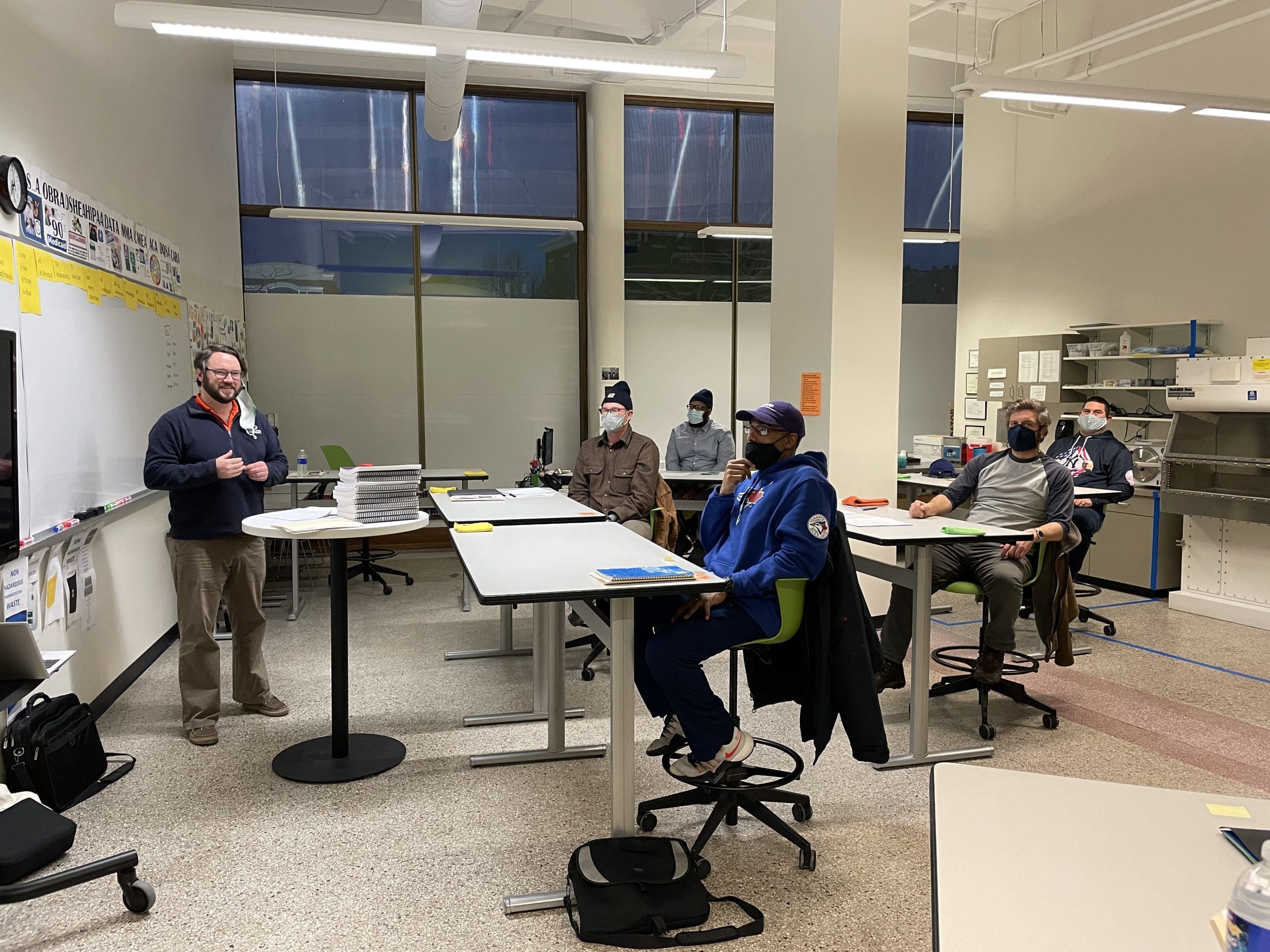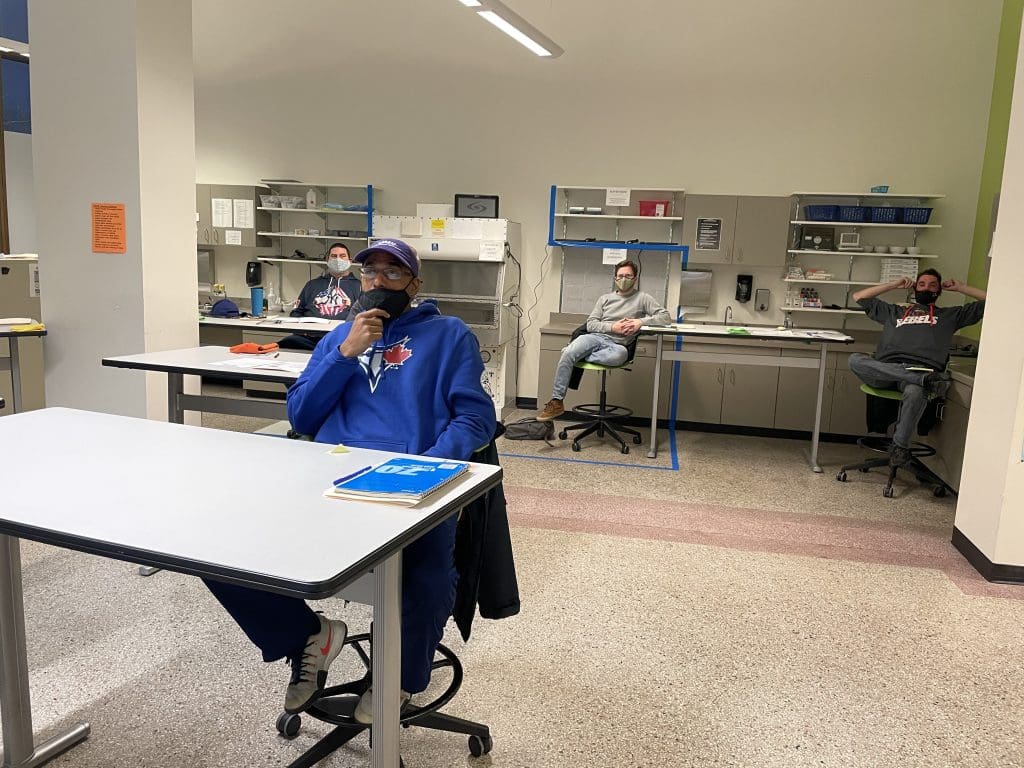
The search for skilled labor in the industry has been a struggle, but the Buffalo Center for Arts and Technology (BCAT) and Olmsted Parks Conservancy have recently collaborated together to help one another.
Using NALP’s Landscape Management Certificate Program, BCAT’s Landscape Maintenance Technician program offers classroom instruction, in-field training and a paid internship program with Olmsted Parks. The course is 120 hours.
“What this class does is provide all of the basics,” says Gina Burkhardt, president and CEO of the Buffalo Center for Arts & Technology, based in Buffalo, New York. “So, they learn all about horticulture, they learn about irrigation, they learn about mowing and snow removal and all those pieces. There’s less training required when they actually start their seasonal work and can hit the ground running.”
Burkhardt says the partnership between BCAT and Olmsted was formed over dinner as they discussed the problems they were both dealing with. BCAT was looking for workforce programs that lead to employment while Olmsted is often struggling to find seasonal workers.
“Our goal is to ensure that folks in our community, especially those that are unemployed and underemployed, get access to workforce development programs that lead to employment,” Burkhardt says.
BCAT and Olmsted came to an agreement where BCAT would develop the program and train up to 15 people while Olmsted would guarantee to interview the students after they graduated and if they were qualified they would hire them for the seasonal work from April to October.
“For us, it was stronger commitment from application to employment than just offering a training program,” Burkhardt says.
Since then, they’ve also had talks with the City of Buffalo as they also have a park system and a cemetery. The city is very interested in interviewing the graduates when they’re done with the program.

Currently, there are 12 students in the program whose ages range from 21 to mid to late 40s. All of the participants are unemployed. Many of them lost their jobs during COVID-19 and are looking for a new path forward.
Once the students finish the classroom portion in March, they will do in-field training with Olmsted in April. Olmsted raised funds separately from BCAT allowing them to offer the internship free of charge.
Participants in the program take a knowledge test at the end of March and while they work at Olmsted there is a behavioral assessment checklist that the supervisor fills out for the people doing the internship.
“It’s a combination of the knowledge base and then the practical aspect and that determines whether they get a certificate of completion at graduation,” Burkhardt says.
Olmsted has the option to hire the graduates for seasonal work or a full-time position.
“As our adults get closer to the end of training and if there aren’t slots for them at Olmsted we will begin to reach out to more of the private ones (landscaping companies),” Burkhardt says. “We think that the training for at least a year at Olmsted will allow them to move into more private companies that pay a little bit higher and offer opportunities for promotion. A couple of our adults want to start their own businesses.”
Creating a Successful Program
In order for a partnership with a vocational center to be successful, there are several elements that must be in place.
BCAT’s program is approved by the New York State Department of Education. They had to submit their curriculum and submit the qualifications of their instructor for approval to New York state. BCAT worked with NALP so that students in the course have all the basics covered and they can go on to pursue NALP’s Landscape Industry Certification as well.
“That partnership has been critical to our being able to develop and get the curriculum approved,” Burkhardt says.
Burkhardt says this approval from the Department of Education gives the program more credibility and helps their adults when they go out and look for jobs.
“That’s an important piece of it,” Burkhardt says. “You don’t want to willy nilly start a program. You want to have something that you can stand behind because we’re were able to get funding for the program because of the nature of and rigor of the curriculum.”
The program is completely tuition-free, including books, thanks to funding from KeyBank and the First Niagara Foundation. Burkhardt says they also received a little bit of funding from their local Feed More and that allows them to provide lunches and dinners to the participants since the classes are held from 3:30 p.m. to 6:30 p.m. on Tuesdays and Thursdays.
For those who need to take the bus to get to BCAT, they provide day passes for them. Burkhardt says it’s important to have support systems in place when offering an opportunity like this to people who are unemployed.
“So many times life interferes, so we try to provide support to help keep life at bay so they complete the program,” Burkhardt says.
Applicants have to take a preliminary test and must have at least a 7th-grade math level and an 8th-grade reading level. Applicants also must have a high school diploma, as required by New York state.
Burkhardt says the main challenges they faced were a lot of people who applied didn’t have high school diplomas and the language barrier as there are a lot of second language learners. Burkhardt says next year they are looking into offering translations in Spanish and Burmese as they have a big Burmese population in Buffalo.
Burkhardt says the program helps produce well-qualified technicians as the students who have gone through the 120-hours of training are motivated and have an understanding of the basics.
“They’re going to start the job really well prepared and they know what they’re getting into so the retention rate is probably going to be a lot higher,” Burkhardt says.

